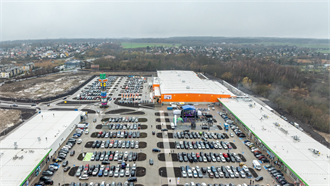Institutional investors expect that so-called ‘green’ lease clauses will be universally implemented in the real estate industry before the end of this decade, according to new research in Savills Investment Management's annual sustainability report for 2019.
The research shows that 73% of institutional investors see green lease clauses being universally implemented between tenants and real estate investment managers by July 2029, with an average consensus pinpointing September 2026. Only 17% see it taking longer than Q3 2029.
Green clauses in leases are an effective method to put principles of sustainable ownership and occupation into action. Most commonly, they oblige owners and occupiers of a building to ensure that specific environmental standards are maintained during occupation and to share emissions data, which is crucial to implementing resource efficiency strategies and furthering carbon reduction targets.
Lucy Auden, head of ESG at Savills IM, commented: ‘The point at which green leases become universally implemented will be a watershed moment for the real estate industry. We are already seeing governments around the world significantly strengthen their policies to counter global warming from 2025 onwards, and compulsory green leases will be a pivotal tool for them to do so, given that operational emissions (from energy used to heat, cool and light buildings) accounts for nearly a third of global CO2 emissions.’
She added: ‘The drivers and willingness are already there – our research shows that climate change resilience is the most important environmental issue for institutional investors, with 61% of our respondents citing it.’
The research insights included in Savills IM’s Annual Sustainability Report 2019 also show that two in three institutional investors (67%) believe that for green leases to be successful, it is important to leverage technology such as automatic meter readings and sensors to assess building sustainability. Such technology enables asset managers to provide buildings that are more energy efficient and technologically smart, which are increasingly in demand by tenants, the report highlights.
However, despite the obvious benefits, the report points out that the collection of ESG data for built assets remains uniquely challenging for the industry because it relies not only on the use of technology but also the relationship with tenants who, in many cases, own and control the data.
The full report is available here


































